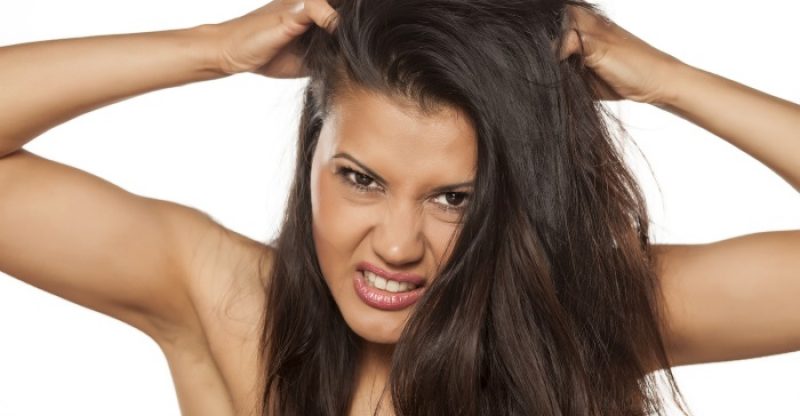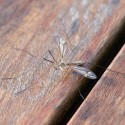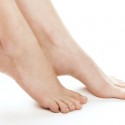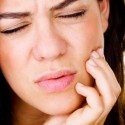Itchy Scalp Causes, Treatments and Natural Remedies
Unless you are scratching your head in confusion or contemplation, no one wants to have an itchy scalp.
If your scalp is giving you problems, it may be time to look for natural remedies to relieve your itch.
While dandruff and other common problems could be causing you this itch, there are many reasons you may have an itchy scalp.
That is why understanding the cause of your itch, as well as ways to treat your scalp naturally, are essential for you to know.
Our guide covers all the causes of itchy scalp and helps you find natural remedies that can help your head feel better quickly.
Whether you have dry scalp, an infection, a fungus, an allergic reaction, or some other ailment, an itchy scalp is never a fun experience.
There are even other symptoms you may be having that pose more inconvenience and long-term problems.
The disorders that cause itchy scalp can also cause hair loss and other issues, so treating your itchy scalp quickly is essential.
The first step to treating your itchy scalp is understanding what is causing you to scratch.
We first examine the most common causes of an itchy scalp to help you determine how best to treat this annoying and sometimes embarrassing symptom.
Understanding Itchy Scalp
Seborrheic Dermatitis and Dandruff
The most common reason you may have an itchy scalp is seborrheic dermatitis or dandruff.
Seborrheic dermatitis is a disorder that occurs when you have an overgrowth of yeast on your flesh.
Yeast finds a home on your skin, usually in areas with lots of hair, and while it is normal to have some amount of yeast on your body at all times, overgrowth of this fungus can cause many problems.
While you can have seborrheic dermatitis on any part of your body, dandruff, a type of this dermatitis, only occurs on the scalp.
This reaction to yeast will often result in flaking skin that causes itching and is caused by inflammation as a reaction to the yeast.
This reaction is similar to eczema, and those who have eczema will also often have dandruff or other forms of seborrheic dermatitis.
There are many reasons you may develop dandruff, including your diet, stress, your family history, and your immune system’s function, and all of these can affect how severely or frequently your reactions occur (1).
Autoimmune Disorders
Some autoimmune disorders, like psoriasis, can create scaly patches of skin on any part of your body, including your scalp.
Psoriasis is usually inherited, but it is unclear how it affects everyone.
While you may inherit the genes that cause psoriasis, not everyone will have symptoms (2).
If you have psoriasis, be sure you are seeking medical attention and keeping your symptoms under control.
Uncontrolled psoriasis symptoms can cause many problems and worsen very quickly.
Allergic Reactions
Allergic reactions can cause many different symptoms, including itchy skin.
If you are allergic to your shampoo or other hair-care product, you could develop an itchy scalp.
Food allergies can also cause this symptom.
If you notice itchy scalp or other itchy skin after using a product or eating a certain food, you could be having an allergic reaction.
Common food allergens include peanuts, soy, and shellfish.
Several hair-care products also contain chemicals that can irritate skin and cause itchiness, known as contact dermatitis.
If you stop eating a food or using a product and this alleviates your symptoms, then you probably have an allergy.
Avoid these foods or products in the future to prevent future problems.
Head Lice
While head lice are most commonly associated with small children and schools, anyone can get head lice.
Head lice are tiny insects. They live on your scalp and feed on human blood.
While different species of lice are common in other mammals and nearly all birds, the types that affect humans are unique to our species.
Anyone who is exposed to head lice can become infested.
The most common symptoms of head lice are itching of the scalp, ears, or neck.
This is an allergic reaction to lice saliva.
You may not start itching right away after being exposed to lice, as symptoms may not appear for several weeks.
When lice find a home in your scalp, they lay eggs, known as nits.
These very tiny eggs attach firmly to your hair strands and are difficult to remove.
Ringworm
Ringworm of the scalp, which is also known as tineas capitis, is a fungal infection.
Ringworm can cause an infection on any skin, including the scalp.
Because ringworm can infect deep into the hair follicle, as well as the surrounding skin or scalp, you may even experience patches of hair loss.
Ringworm appears most often as a raised rash, sometimes in the shape of a ring or circle (3).
You may notice black dots on the surface, as well.
The infections that cause athlete’s foot and jock itch are related to this type of fungus.
You are more prone to getting this fungal infection if your hair is dirty, often wet, or if you have injuries to your scalp or skin.
Bathe and wash your hair regularly, and do not allow your scalp to stay wet for extended periods.
If you sweat a lot, be sure to dry your hair.
This fungus spreads easily from objects, animals, and people, which is why it is most commonly seen in children.
Natural Ways to Treat Itchy Scalp
Tea Tree Oil
Tea tree oil has antifungal and antioxidant properties that make it an effective treatment for several scalp disorders.
In particular, tea tree oil can be used to treat dandruff and other forms of dermatitis.
Because tea tree oil can fight bacterial, viral, and fungal infections, it is effective at treating seborrheic dermatitis and helping your scalp and other skin to heal (4).
You can put tea tree essential oil into your shampoo to relieve the itching associated with dandruff.
Studies show that those who use this treatment are more likely to see improvement in their symptoms (5).
Use Good Hygiene
Sometimes, itchy scalp is caused by something as simple as a buildup of oils on your scalp, so washing your hair regularly can go a long way toward relieving your itch.
Other conditions, such as ringworm and head lice, are contagious, so keeping your brushes, combs, and other hair tools clean is also essential for keeping your scalp itch-free.
Always take the time to educate young children about sharing things that touch their heads, such as hats and helmets, to prevent the spread of contagious pathogens that can cause scalp problems.
Create a Hair Mask
Many natural ingredients do an excellent job of not only conditioning your hair but also healing and moisturizing your scalp.
Ingredients like honey are known for their antifungal and antibacterial properties (6), while others, like avocado and banana, contain essential oils and enzymes that heal and protect.
Using a mask on your hair and scalp regularly can help fight bacteria and fungus, and give the skin on your scalp the needed attention it deserves.
To make a simple, natural hair mask, combine two tablespoons of honey with a banana and half an avocado that have been well smashed.
Mix all these ingredients well, then apply to your hair and scalp.
Allow to sit for up to 30 minutes, then rinse and wash your hair as you normally would.
Using this mask two to three times per week while you have an itchy scalp can calm the problem, and using it weekly when you do not have itching can help prevent problems from forming.
Be Kind to Your Hair
Sometimes, you can contribute to your scalp itchiness without even realizing it.
Beauty tools that use high heat, such as blow dryers and flat irons, can dry out the skin on your scalp.
Wearing your hair in a tight ponytail or bun causes stress on your scalp, too.
Just being more gentle with your hair can relieve stress and keep it better-moisturized.
Use heat sparingly on your hair, and wear looser hairstyles that promote blood flow to all parts of your scalp.
Exercise
Many types of exercise are helpful in reducing the symptoms associated with psoriasis, which is great news for those who suffer from this skin disorder.
Exercises like tai chi and yoga, which emphasize attention to breathing, help reduce stress and promote blood flow, both of which can reduce outbreaks and symptoms.
Meditation can also be helpful if you have psoriasis.
While all exercise is healthy, those that promote controlled breathing are especially helpful for your itchy scalp.
Avoid Certain Foods
Yeasts and fungi can overgrow when they are given the proper environment and the right food sources.
Certain foods are known to promote the growth of these unwanted visitors, while others inhibit them.
If you have an infection caused by yeast or fungus overgrowth that is causing your itchy scalp, try avoiding gluten, dairy, soy, alcohol, peanuts, and processed foods for a while, to see if it helps your symptoms.
Consuming fungus fighters is a great way to control ringworm.
These foods include coconut oil, ginger, garlic, apple cider vinegar, bananas, avocados, and flax seed.
Say No to Chemicals
Many hair-care products today contain harsh chemicals that can irritate and dry out your scalp, leading to itching, raised bumps, and other problems.
By avoiding harsh products, you can protect your scalp from these negative effects.
Either select natural products with no chemicals or make your own products at home.
Apple Cider Vinegar
Apple cider vinegar is widely known for its anti-inflammatory properties.
This powerful ingredient is excellent for treating the overgrowth of yeast and viruses that may cause itchy scalp.
If your scalp is dry, this remedy can also help with that usual cause of occasional itchiness.
To use, start with clean, dry hair.
Combine one cup apple cider vinegar and one cup water in a spray bottle.
Apply directly to your scalp, using cotton balls to help if needed to cover your entire scalp area.
Allow sitting for five minutes. Rinse and shampoo as usual.
Use this several times a week until your itchy scalp clears, then once a week after to maintain scalp health.
Aloe Vera
The moisturizing properties of aloe vera are why it has been used for centuries to treat dry skin.
If your scalp is excessively dry and causing itching, aloe can help.
While it is best to use fresh aloe directly from a plant, you can use aloe gel you purchase, as well.
Just look for varieties with no other ingredients.
Massage the gel directly onto your scalp, then allow to sit for at least 15 minutes.
Rinse and wash your hair as you normally would.
Repeat this process several times per week for extreme dry scalp problems.
Coconut Oil
Another popular remedy for dry, itching scalp is coconut oil, which works well to moisturize your skin.
Simply massage the oil into your scalp after showering.
Leave it on for at least 30 minutes, then wash your hair again.
Use this treatment three times per week to start seeing results quickly.
You can also add warmed coconut oil to your shampoo before showering, which can help moisturize skin.
Baking Soda
Baking soda helps disinfect all surfaces, including your scalp, and it is also a great exfoliant for your skin.
If you have dandruff, baking soda can be an excellent way to remove dead, flaky skin and give you a clean, itch-free scalp.
Start with two tablespoons of baking soda, and mix this with enough water to create a paste.
Spread this paste onto your scalp. If you have longer hair, you may want to work in sections.
Allow the mixture to sit for ten minutes. Massage into your scalp, then thoroughly rinse your hair.
You can use this once or twice a week to achieve your desired results.
Precautions
Treating an itchy scalp can be easy if you understand what is causing your itch.
While some issues are more straightforward to handle than others, most respond well to natural treatments in just a few days.
If you have a medical condition that causes dry skin, this could be contributing to your itching scalp.
Allergies to foods, chemicals, and medications are also common culprits for head scratching.
Eliminating allergens from your diet and lifestyle will be critical to ridding yourself of itchy scalp.
Be sure to use good hygiene, and never share anything that touches your head, such as combs, brushes, hats, or helmets.
Use gentle products on your head that do not contain harsh chemicals to keep your scalp healthy.
If your itchy scalp does not respond to natural treatments, or you notice other symptoms, such as hair loss, talk with your doctor.
You may have another problem that is causing your itchy scalp that should be treated conventionally.
For most people, itchy scalp is just the result of a minor infection or dry skin, so treating this problem with natural moisturizers and anti-microbial ingredients is safe and effective.
Do not let an itchy scalp stand in your way of enjoying life.
Take action, and start feeling better soon.
FDA Compliance
The information on this website has not been evaluated by the Food & Drug Administration or any other medical body. We do not aim to diagnose, treat, cure or prevent any illness or disease. Information is shared for educational purposes only. You must consult your doctor before acting on any content on this website, especially if you are pregnant, nursing, taking medication, or have a medical condition.
HOW WOULD YOU RATE THIS ARTICLE?





